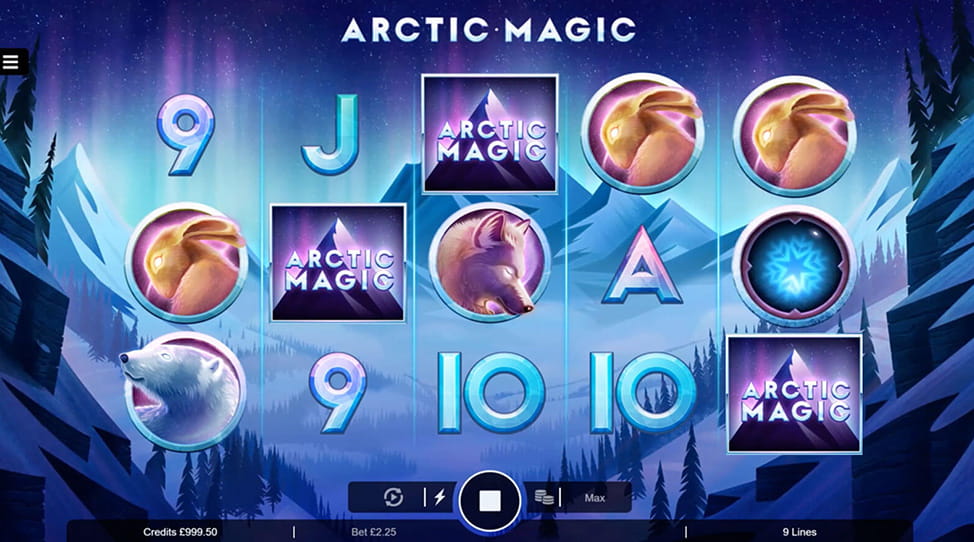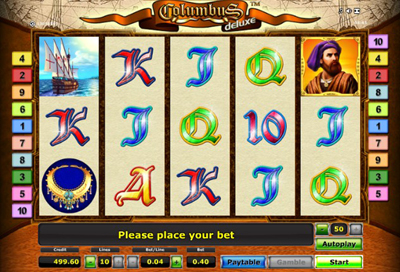Betway Slots Rtp
Before playing online slots, you probably browsed through reviews, guides and muddled through the whole plethora of information floating around out there, and came across the acronym ‘RTP’. This means Return to Player and, put simply, this is an indication of how high a game’s payout percentage is.
Mega Joker (NetEnt) – Up to 99% RTP. Whilst Jackpot 6000 boasts an extremely high RTP, it is just. All slot machines have a Return to Player (RTP%) percentage which you can find by searching the table below. RTP is the expected return on every spin.
In this article, we’re going to take an in-depth look at what RTP is, how it’s calculated, why volatility matters and ultimately why you need to know!
TL;DR
Not every slot game is the same. Being aware of RTP, ‘Volatility’ and other factors could help you maximise your online casino experience. If you want to improve your strategy before diving into online casino games, make sure that you’re prepared and armed with the knowledge of how it all works! Be sure to read through to get the full picture!
What is RTP?
RTP – Return to Player – is represented as a percentage that indicates what amount of a player’s wager will be returned to them. It is there, among other information, to essentially help players make informed decisions on their chances of succeeding in a particular game before they decide whether or not to play.
So what is a typical Return to Player percentage? The higher the RTP percentage, theoretically, the more often you’re likely to win, with good slots generally having an RTP percentage of around 95%.
Sounds good, right? Does this mean that you win 95% of the time when playing a game with an RTP of 95?
Well, No. This number it’s not quite what it seems.
The main thing that is extremely important to know is that RTP is a ‘theoretical’ number. It is a percentage that’s calculated over a long time of gameplay and should not be taken literally. It is essentially an indication on how much will return back to the player if they play long enough i.e. multiple thousands of spins – this is not an indication of predicted short term success.
Why then, do we need to know the Return to Player percentage if it’s not to be taken literally?
Firstly, notifying players of a game’s RTP, among other information, is a requirement from European gaming authorities. The idea is to ensure transparency and meet the required standards, and aims to reassure players that game developers are not indulging in unfair practices.
It is a requirement that developers should let players know what the odds of a win are on each and every game. You will therefore always be able to find out the RTP of the slots you like to play. You can often find the RTP in a slot’s info section on a developer’s site.
At this point we should clarify that casinos don’t necessarily make their own games – they license games from developers. These developers could license the same game to different casinos. You can sometimes find jackpots that are accumulated in one game by players across different casinos, but we’ll cover this a little later in the article.
Ultimately, knowing a game’s RTP helps you manage your interactions with online games. Being informed of potential long term outcomes can help you budget effectively and maximise your experience.

How can this help you make informed decisions? First, we need to understand how RTP is calculated.
How is RTP Calculated?
Put simply, the Return to Player rate is the number of total wins divided by the total stakes wagered.
As an example, let’s imagine a slot with an RTP of 95%. Let’s also imagine that you’d make 1000 bets at a €1 stake each time. On this game, you would theoretically expect a return of €950. The other 5% is retained by the casino, also known as ‘House Edge’ – it’s how they make their money.
It’s important to know the ‘House Edge’ number, no matter what game you’re playing, whether that’s slots or table games, online or in a physical casino. The ‘House Edge’ tells you how much of your wager ultimately goes to the casino.
As you will see from looking through all the games online, even the slots with the highest RTP slots won’t be 100%. Some of your wager will go to the casino, every time. They have to make their money. The RTP is there to tell you, over time, what will theoretically come back to the player, but also designed to let you know what will probably go to the casino.
Now, this is something that we all know – the casino will always have the edge, if they didn’t there wouldn’t be any casinos.
But I know what you’re thinking, ‘what’s the point of playing a game where the return is less than my stake?’. That’s where volatility comes in.
What is Volatility?
‘Volatility’, or ‘variance’ as it is sometimes called, is also a factor alongside the RTP when choosing a game to play and planning your strategy. It’s how we can assess whether a game is right for us and another indication of what our actual success could be.
There are low volatility games and high volatility games. They work like this:
Low volatility games would pay out smaller wins, but do so more frequently. High volatility games would pay out bigger wins, and do so less frequently.
Why is this? Slot machines vary between low and high volatility to suit different kinds of players and their preferences when playing. Playing a game with low volatility can be done so with low stakes for a long time, accumulating small and steady wins. While high volatility games may not return a win of any kind for many spins, but when the player hits, it pays out big.
Quite often, you will find that the biggest RTP percentages have lower volatility. Typically this means that even with higher stakes, you can expect lower payouts. The likelihood of winning big is reduced.
And conversely, games that have a higher volatility tend to have a lower RTP, the house has more of an edge over time, but the player has greater opportunities for a big payout.
The game pools money wagered by you and other players. Typically, in high volatility slots, bets are stored up more intensely by the slot to contribute to bigger and less frequent wins, you might expect an average of winning combinations to theoretically occur every ten spins for example. Whereas in low volatility games, the slot pools money less intensely and you might expect an average of winning combinations to theoretically occur every three spins.
A slot’s volatility plays a major role in getting an idea of your actual chances of winning, even with a high RTP. That’s why many players prefer to play slots with a previously unmentioned medium volatility! This could be seen as striking a good balance between the frequency of your wins and the amount you win.
So what does all this mean in relation to actual numbers? Well, a good online slot should generally have a rate of around 95% or above. Anything above 97% would be classed as high RTP and probably be low volatility. Any slot with an RTP below 95% could be seen as a ‘money grabber’, where the ‘House Edge’ and volatility would be too high for many players.
But wait, there’s more. There’s actually another kind of game to consider. Progressive jackpots games.


Why did we decide to talk about progressive jackpot games separately? Because these games are very different.
As we mentioned earlier, developers could license the same game to different casinos. You could find that a game is a progressive jackpot game.
Progressive jackpot games, or ‘global games’, work like this: all players of a progressive jackpot game contribute to a massive, collective jackpot – held by the game. Whereas ‘local’ games contribute player stakes, from only that casino, into a smaller pot – held by that particular casino. These progressive jackpot games have the potential for extraordinarily big payouts compared to, say, local, low volatility slot games.
Depending on the type of player you are, progressive jackpots may be more attractive. As you’re playing, you’re constantly adding to an ever-growing jackpot.
Because of the draw of the huge jackpot on offer, RTP rates of these progressive jackpot games are set accordingly. The potential for a huge win means that the volatility is usually extremely high and as such, the RTP will be low in comparison to other games, meaning more of the player’s money will statistically go to the house.
As you are beginning to see, your winning potential is influenced by many factors. If you are somebody that takes an analytical approach to your game, you should keep all of these features in mind.
What is RNG?
So, on the face of it, the casino has a ‘House Edge’ and the games could be seen as too volatile to win big or not volatile enough to win anything, does the player have any chance to come out on top? The answer is, yes!
To ensure fairness, games have to use something called RNGs, or ‘Random Number Generators’. These make sure that every stake has as much of a chance of winning as any other bet made by any other player.
The Random Number Generators are not aware or influenced by a big jackpot just paid out or how long a player has spent on the game in that particular session, they are fair and unbiased – regulators ensure that this is the case. This ensures that players are not manipulated by the game into betting more or playing longer.
The outcome of games are completely random by design and because of this, there is a statistical average. This means that while one player may hit it big, another may win a small amount or not at all. This is the randomness that gives us the thrill of playing the game! Which is why you can win big with a small bet, something that RTP cannot tell you.

Betway Slots Rtp Casino
Is there more to consider on a slot game than RTP and volatility?
There is, but it’s not as apparent. Something called ‘Hit Frequency’.
What is Hit Frequency?
Another aspect of slot games is ‘Hit Frequency’. As with the RTP, this is a number just as hazy. The ‘Hit Frequency’ percentage will tell you how often a slot will award a win. But, as with the RTP, this number is also a calculated average over a very high number of spins. The difference between ‘Hit Frequency’ and RTP is that game makers are not actually required to officially disclose their slot’s hit frequency percentage.
In the event of you finding out the ‘Hit Frequency’ of a game, as well as its RTP, it could provide an extra layer of analysis in estimating the potential of that particular slot.
Do it Yourself
Can you yourself calculate the game’s RTP and volatility? Of course you could, but there’s a reason that gambling authorities do that work for you: you need a lot of data!
But if you did want to keep track of your own RTP and test the information you are given, you simply have to divide:
- The total amount you won over a session (including money won from free spins, etc), by:
- The total amount you wagered over that session.
To examine a game’s actual volatility, as you experience it, you’d need to record data in greater detail. Note the frequency of your wins and the payouts you receive in relation to your wager. As I mentioned before, the more frequent and small the wins, the lower volatility. The more sporadic and bigger the wins, the higher the volatility.
Additional Features
Something more common with high RTP games is that providers have included fun bonus games and features within those games – bonus features like wilds, multipliers or free spins.
This is because the competitive online casino industry, slots with good RTP rates, that attract players, force the competition to innovate with attractive incentives and appealing games that players will enjoy. Ultimately, this competition keeps the online casino industry lively and ensures that the RTP percentages across the board remains high. This competition means that you, the player, will be the winner!
If you’ve played physical slot machines and online slots, you’ll be interested to know that online slot games have a higher RTP than physical slot machines. Why? With very few overheads, online casinos can pass the benefits onto the players, through better odds, welcome bonuses and regular offers.
Conclusion
So what can we take away from our dive into Return to Player percentages?
Ultimately, the time and resources required to calculate the RTP percentage of a game, will be beyond most of us. The only thing you can do is look for trustworthy and transparent online games that display RTP numbers. This information is calculated for you and is there to help inform you, and, in displaying this information, any developer that has complied with regulators has demonstrated its integrity.
That being said, do we listen to the actual theory behind the RTP percentages? After all, most things we discussed in this article were ‘theoretical’.
Betway Slots Rtp Game

Well, yes and no.
Yes, the RTP number helps us make sound decisions on what games to play that suit us individually and the kind of game we want to have. It can identify games of quality that we’d enjoy.
Betway Slots Rtp Login
And, no, we shouldn’t let it influence us completely, because we know what slot machines are. We’re well aware that we might not get our RTP percentage back in a single session… but we absolutely could get much more!
So, whatever slot game you decide to play, remember that the RTP, no matter how high the number, is never a guarantee for wins. And while the motivation to play online slots may be because of the excitement that you may hit it big, it’s important that your relationship with online gambling be a healthy and responsible one.
Knowing details behind the games you want to play, such as RTP and volatility, will aid you in assessing the games you encounter and help you decide whether they are right for the player you are.
Making informed decisions that help you in your strategy can make your experience more enjoyable and rewarding.
Betway Slots Rtp Poker
Have fun!